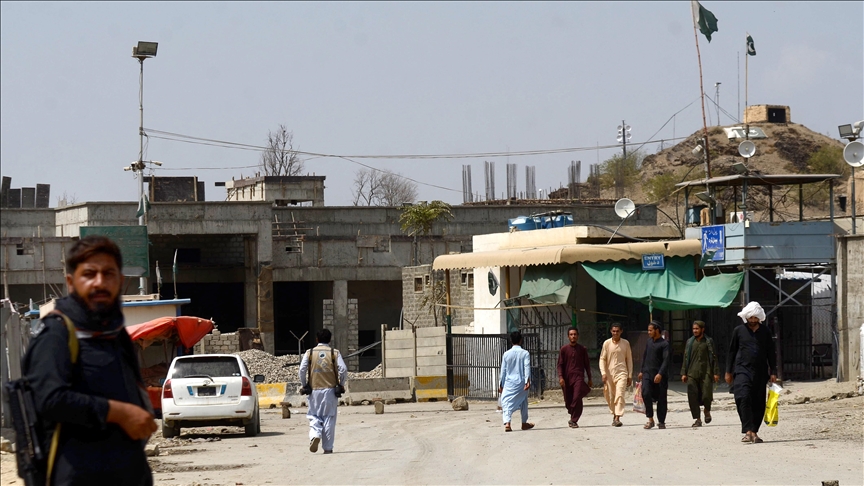Pakistan seeks calm in Balochistan, ahead of upcoming elections
According to Iftikhar Firdous, founder of the Khorasan Diary news platform, tensions dropped between Iran and Pakistan after they fired missiles at each. The province concerned is marginal to Pakistan's internal political stability. But Balochis have been protesting for months against the government, which is unable to solve the security problems linked to neighbouring Afghanistan.
Islamabad (AsiaNews) – Iran and Pakistan seem to have reached a draw after firing missiles at each other in recent days.
Several analysts believe that both countries were putting on a show of force for a domestic audience ahead of elections later this year. While Iranians vote in March, Pakistani will be called to the polls in less than a month.
"Had the situation between Iran and Pakistan worsened, the current caretaker government could have postponed the elections set for 8 February, but there has already been de-escalation," said Iftikhar Firdous, founder of the Khorasan Diary news platform run by journalists and researchers, speaking to AsiaNews.
"Balochistan, like Khyber Pakhtunkhwa,[*] where most of the attacks in Pakistan take place, is not politically relevant," explained Firdous, who is also visiting professor at Islamabad's Quaid and Azam University.
In all likelihood, elections will go ahead as planned, despite rising violence in Pakistan over the past year, with about a thousand people killed in 2023.
Pakistan’s Balochistan (a region geographically shared with Iran and Afghanistan) is "the largest province in the country but the least populated, and is inhabited by ethnic Pashtuns – the same as the Taliban in Afghanistan – and ethnic Baluchis," Firdous said.
"The Pakistani government has always said that the insurgency in Balochi areas is led by India, which is seen as its main rival in the region."
In 2016, an Indian national, Kulbhushan Jadhav, was arrested on espionage charges and sentenced to death by Pakistan's Field General Court Martial, but on 18 May 2017, the International Court of Justice stayed the execution ordering Pakistan to review the trial and conviction.
Pro-independence Baloch groups have been fighting for their own state since 1948 (including areas currently held by Iran and Afghanistan).
There are two main groups, the Balochistan Liberation Front (BLF) and the Balochistan Liberation Army (BLA), “although a group called BRAS (Baloch Raji Aajoi Sangar) emerged in 2018,” an alliance of Balochi separatist organisations.
"In recent years, in addition to targets related to the Pakistani state, these groups have also begun to target Chinese investments tied to the China-Pakistan Economic Corridor," a project linked to the Belt and Road Initiative worth tens of billions of dollars.
In Balochistan, Islamabad is faced with several groups it considers terrorists who, for different reasons, have the Pakistani state as their sole target. This is why military repression is so harsh in the province.
Even now, the local Baloch population resents the Pakistani government, feeling neglected in terms of development (Balochistan is the most economically backward part of Pakistan despite its rich resources, especially gas) and political representation.
At present, "There are two protests going on in Balochistan," Iftikhar Firdous added.
“One, which brought hundreds of protesters to Islamabad, was organised in response to enforced disappearances carried out by the army to fight the armed insurgency.
"The second concerns the possibility for Afghans to cross the border freely and exchange goods. Since the government imposed the obligation to have a visa and a passport, traders who belong to tribes divided only by the border have begun to protest.”
This protest has been going on for about three months. However, the Pakistani government seems to have no intention of giving in; for a week now, the Torkham border crossing in Afghanistan has been closed to lorries because Afghan drivers do not have visas and passports.
Although the visa system was already partially introduced in 2014, it is now more necessary than ever for Pakistan to enforce security since the Tehreek-e Taliban Pakistan (the Pakistani Taliban or TTP) operate out of Afghanistan.
"Several videos have been posted showing TTP fighters in Afghanistan using NATO equipment abandoned by the US-led coalition after their forces pulled out in August 2021. They are not concealed, on the contrary. Still, the Taliban cannot and will not intervene for several reasons," the analyst said.
"First of all, because the Afghan Taliban received hospitality from the TTPs in Pakistan during the war in Afghanistan. Secondly, even though we are talking about distinct groups, they are ethnically related with family and tribal links. Lastly, because in the tribal system, once you swear allegiance as the TTP did with their Afghan 'cousins', you can't go back on your word.”
For the Pakistan government, this is a complicated situation, with the prospect of more violence in the coming weeks.
“The attacks are almost exclusively reported in Khyber Pakhtunkhwa and Balochistan, circumscribed to these territories," Firdous explained. This is “nothing new, neither for the government nor the army.
Yet, “Today's situation is very different from the 2013 elections, when big cities were attacked. Until Balochistan's armed groups gain a grip on a territory, this is business as usual for Islamabad.”
[*] Formerly known as North-West Frontier Province or NWFP.
17/05/2023 15:26
02/02/2023 19:52







.png)










